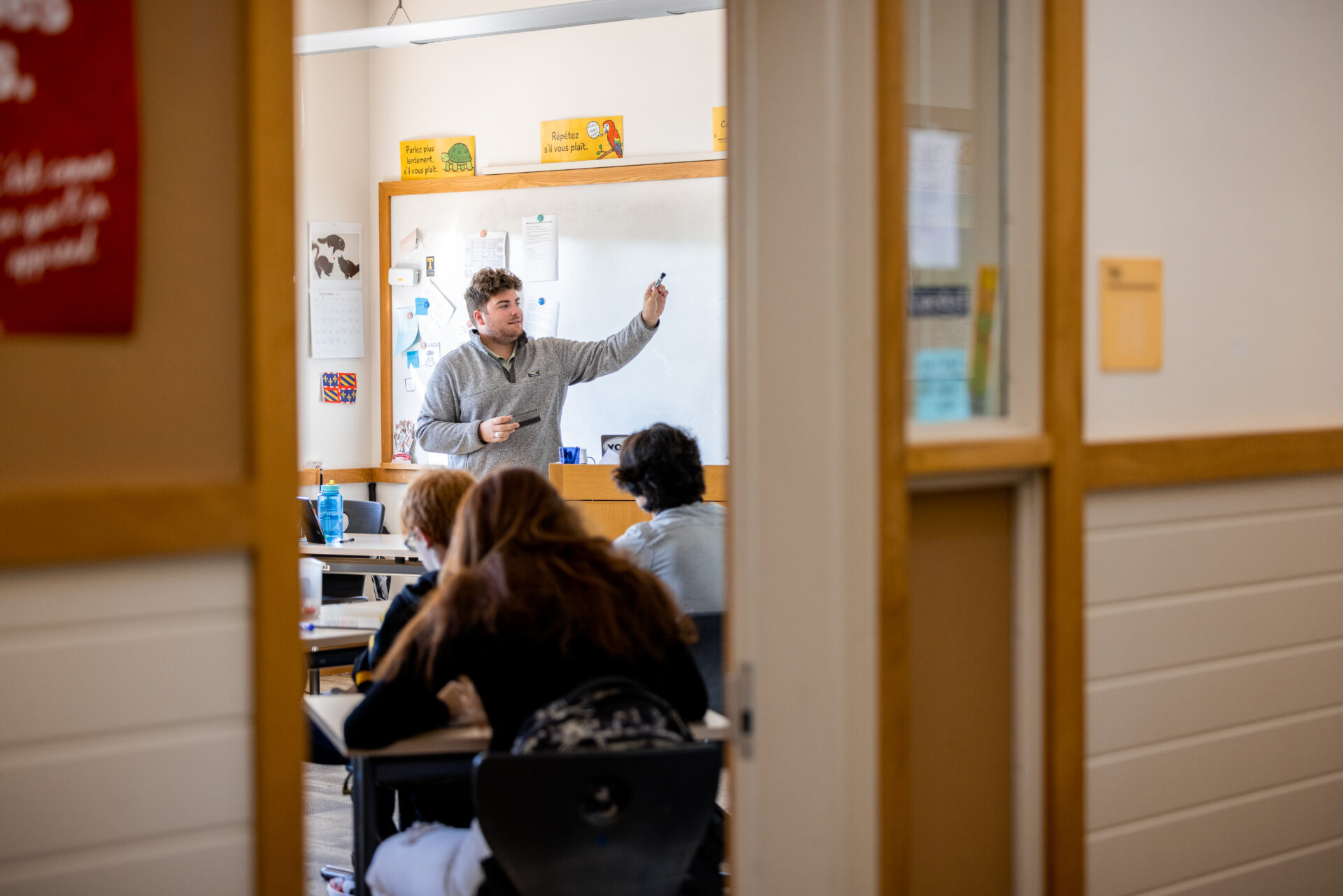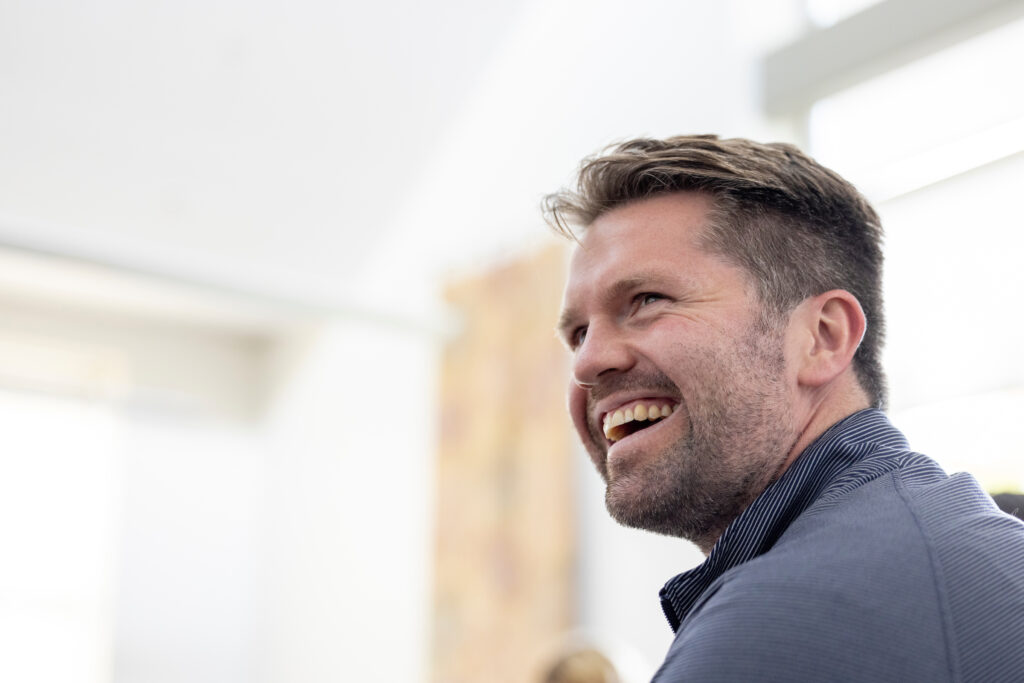
By Bryan Geary
Generations of Tilton students past and present often characterize their experience on the Hill with stories of faculty and staff members who made a difference. It’s a common thread that stretches from 1845 to 2022 and beyond. Last year’s record breaking Day of Giving in support of the school’s faculty and staff was evidence of the impact these individuals have had and continue to have on the Tilton community. Paired with funding from generous donors, a new Professional Development Fund was established to care for and support teachers in new and exciting ways.
Making Mental Health a Priority
This August, Tilton began a partnership with nationally renowned speaker and mental health expert Lynn Lyons to offer an opportunity for faculty and staff to look inward.
“My focus is on how we prevent anxiety and manage our unpredictable world,” says Lyons. “I want the Tilton community to feel better emotionally equipped, and we’ve come up with a great plan to get there.”
Lyons, the author of The Anxiety Audit, has appeared on Good Morning America, National Public Radio, and numerous other outlets over the years to offer her insight on how to deal with a source of stress that is all too familiar to many. Thanks to the new fund, the school was able to create a four part series with Lyons to examine mental health on campus. Part one offered faculty and staff a dedicated time to and a variety of ways to cope with those stressors.
“Tilton has made a commitment to supporting the well-being of all members of the school community and I’m so pleased to be a part of it,” continues Lyons. “[Head of School] Kate [Saunders] and I agreed from the start that this was not to be a ‘one and done,’ but a series that would offer concrete skills for handling worry, stress, and relationships.”
The previous two school years were particularly challenging for educators at Tilton. Navigating the pandemic and hybrid learning had an isolating effect on many that altered the fabric of teaching and learning on campus. Teachers at Tilton dealt with increased stress and the feeling of burnout. Joseph Scala-Harbert, a World Languages faculty member and the faculty representative on Tilton’s Board of Trustees, says that Lyons’ presentation and the dedicated time to discuss these issues have helped the faculty feel connected heading into the new school year.
“This was something we needed — especially coming off of two really difficult years in the academic world,” continues Scala-Harbert. “My initial reaction was just a big thank you to the donors who made this possible. It is really appreciated and really valued.”
The insights shared by Lyons are helping Scala-Harbert navigate his third year as a faculty member and, particularly, helping him differentiate this academic year from his first two. “The first two years were challenging, intense, and eye-opening,” he says. “Coming into this year, I went into it thinking, ‘I’m going to use every single tool that is given to us and run with it.’” For Scala-Harbert, that now includes being intentional about managing his schedule and workload and not hesitating to ask for help from a colleague when it makes sense. “So far, I’d say I feel more settled, more consistent, and more confident,” he adds.

Investing in People and Program
The new fund is also being utilized to provide increased and enhanced opportunities for growth on both a personal and programmatic level. New faculty member Connor Compton recently attended a workshop called “School Reimagined” hosted by Mount Vernon Ventures in Atlanta, Georgia. Compton, who has taken over the school’s Entrepreneurship class, says the focus on creative design thinking was especially applicable. “The big takeaway was empowering students to use visual and design-based thinking in order to solve a problem. Then, rather than just turning a project in, taking it a step further to pitch it, and try to convince people that what they did has a purpose.”
Compton’s background as a Social Sciences teacher featured a lot of traditional history classes, or in his words:
“Where’s my text? Where are my resources? What’s my vocab? How am I going to set up a structure and a routine?” And while that model is the best fir for some classes, Compton says it was eye-opening to see how elements of that approach played out in the first two weeks of this year’s Entrepreneurship class. “I decided to blow it all up,” he says with a smile. “When I’m teaching world history, there’s information, people, places, events that actually happened — there are lists you can go back to every single year. With this class, it’s really trying to empower a student to see the world from an entrepreneurial point of view; to develop their own entrepreneurial mindset, and to take feedback from real entrepreneurs and apply it to solve problems.”
The timing of the opportunity at Mount Vernon was perfect for an educator who is new to the community and is looking to take a program that already exists to a different level. “I took away some concrete examples of how to improve my class and my teaching, but I also got to see how a school can reimagine their teaching and their curriculum,” he says. “To be able to bring that back and be encouraged to share that with our community was great. My colleagues asked about it, wanted to know what I saw when I was there, and then trusted my opinions on it.”
With these new initiatives, the hope is to build on the culture of wellness to support faculty and staff in meaningful ways that both bolster Tilton programs and care for the people who help make it possible. “We place immense value on the safety and wellness of our students,” says Scala-Harbert, “but to do that well, we also need to take care of ourselves.”